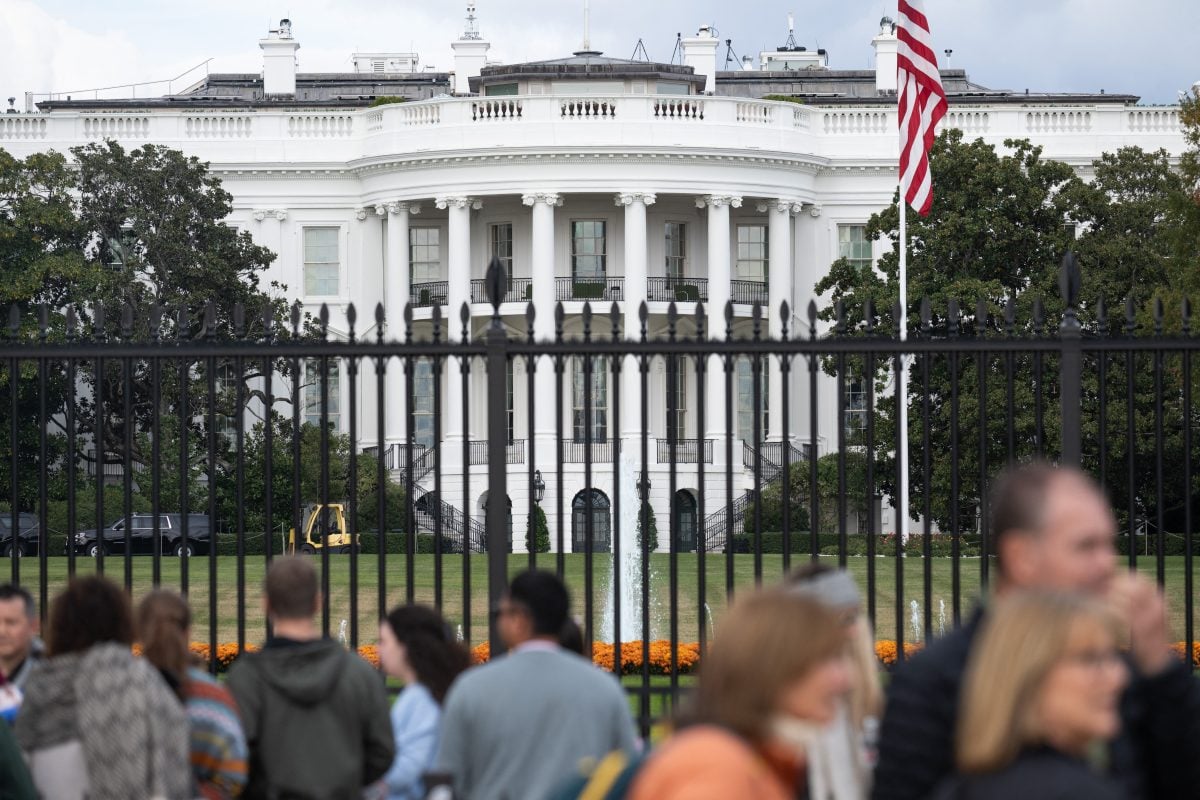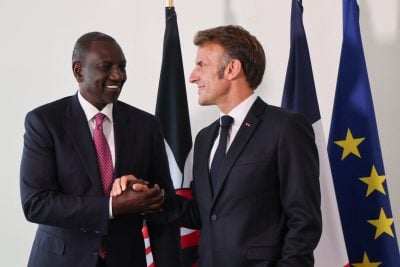Experts have expressed doubts that the US’s expired African Growth and Opportunity Act (AGOA) will receive a fresh lease of life despite persistent reports that the Trump administration is considering an extension.
AGOA, which has provided eligible sub-Saharan African nations with duty-free access to the US since its enactment in 2000, was allowed to expire on September 30, ending trade preferences for 32 countries.
In late September, South Africa’s trade minister Parks Tau said he was optimistic that AGOA would be renewed. His office suggested that there was “broad support for the renewal of AGOA (the African Growth and Opportunity Act) in Congress across the aisle”.
Days earlier, Massad Boulos, Trump’s senior adviser for Africa, raised hopes when he said the administration “agreed with the objectives” of Agoa but said there are “sometimes issues with some of the details or how it’s being executed.”
But Gustavo de Carvalho, senior researcher at the South African Institute of International Affairs, says the political direction of travel in the US suggests that a renewal is unlikely.
“The US is searching to secure better deals for themselves and are engaging in bilateral negotiations with other countries. If you consider their foreign policy, AGOA doesn’t really fit the narrative.”
There has been no public sign from Washington DC that the now-lapsed act will be renewed, despite the insistence of Tau’s office in late September that “the consensus suggests that AGOA may be renewed for a short-period of between one-to-three years to allow Congress to introduce changes and improvements to the programme.”
De Carvalho added that there appeared to be confusion over whom to lobby in the US for an extension of the act.
“There is a lot of confusion on who calls the shots, who really drives some of the thinking, who do you talk to in Washington? How does one understand their entry point, because the traditional channels of communication are no longer there.”
Former South African diplomat and geopolitical consultant Mohamed Cassimjee says that in any case, an extension is unlikely to lead to a more favourable deal for African countries.
“Based on the current transactional approach in the US, if they are going to renew it, we may ask how it is going to be recrafted in the way to fit the America First agenda.”
Mitigating the costs of AGOA’s cancellation
The International Trade Centre has calculated the costs of AGOA’s expiry. Across all sectors, tariff measures introduced in 2025 are estimated to reduce projected exports of AGOA beneficiaries by about 8% by 2029. The expiry of AGOA adds a further decline of 0.6 percentage points, or $189m. $138m of that will be accounted for by reductions in exports of apparel and textile products to the United States, which are expected to register a decline of 9.7% by 2029 as a result of the end of AGOA, by far the greatest impact on any sector. Skins, leather, products thereof and footwear (-3.3%), processed food and animal feed (-1.6%) and vehicles (-1.3%) are the next most affected.
Asked about how South Africa can weather AGOA’s demise, Cassimjee maintained that South Africa must push to diversify its markets, while also continuing to engage with the US.
“Trade diversification is paramount, but they must continue to engage with the US. South Africa’s strength is its ability to engage, and through engagement there are much better outcomes. The president must continue to be a strong ambassador for the country. In those three ways South Africa can proceed.”
Brandon Heimstra, founder of House of Macadamias, a company specialising in premium macadamia nut products that exports from South Africa to the US, said that tariffs are having an impact but that selling branded products rather than unprocessed crops was a way to continue its attraction to US consumers.
“A 30% tariff in my case doesn’t mean you lose a 30% margin. The majority of my costs are actually inside the US when the product lands here, with logistics, marketing and other expenses. The cost of manufacturing in South Africa is relatively cheap.”
“Of course, the tariffs aren’t ideal, but it’s not devastating for us. I think it’s partly because we have a brand, and we are selling an end product here so we get a lot of the value capture, whereas we would have been impacted a lot more if we were selling a raw material.”
Heimstra said that they were still trying to mitigate the increased costs by coming to agreements with South Africa nut suppliers.
“We are working with suppliers locally, some of them have come to the party and lowered costs, which help us.”
Tilt towards Africa
David Luke, a director at the Firoz Lalji Institute for Africa at the London School of Economics, suggests that AGOA’s demise might be an opportunity for African nations to boost regional trade.
“In the short term, business is going to be hit by losing the market, but in the longer term it may change the habit of exporting out the continent to looking at the internal market. As you change that habit, many of the things you see as constraints such as transport infrastructure will become business opportunities for others to respond to.”
“I don’t think any of us expect a shift to the African market overnight, but it will happen step by step.”
Want to continue reading? Subscribe today.
You've read all your free articles for this month! Subscribe now to enjoy full access to our content.
Digital Monthly
£8.00 / month
Receive full unlimited access to our articles, opinions, podcasts and more.
Digital Yearly
£70.00 / year
Our best value offer - save £26 and gain access to all of our digital content for an entire year!

 Sign in with Google
Sign in with Google 



